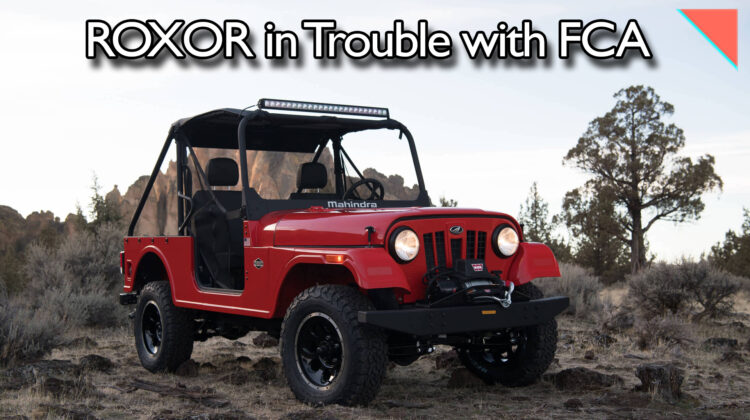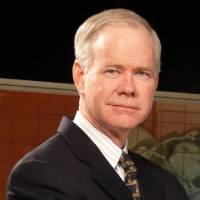
Runtime: 8:43
0:33 Nissan Sells Electric Battery Operations
1:11 Daimler In Talks to Build Smart EVs In China
1:46 FCA Attempts to Block Mahindra Roxor
2:38 Ford Introduces Wrong Way Alert
3:31 Tesla Develops Neural Network Chips in Secret
4:48 U of M-Dearborn Demonstrates Mobility Tech
5:39 Weekend Race Results
6:31 Why Toyota Chose Fuel Cell Semi
Visit our sponsors to thank them for their support of Autoline Daily: Bridgestone , Dow Automotive Systems , Lear Corporation , and ExxonMobil.
On today’s show…FCA is trying to block sales of Mahindra’s Roxor off-roader because it claims it’s a Jeep knock-off…Ford introduces new technology on the Focus that warns the driver if they’re driving the wrong way…and Tesla reveals its next version of AutoPilot will use neural network chips. All that and more coming right up on Autoline Daily.
This is Autoline Daily the show for enthusiasts of the automotive industry.
NISSAN SELLS ELECTRIC BATTERY OPERATIONS
If at first you don’t succeed, try, try again. After a deal fell through last month to sell its electric battery operations for $1 billion to GSR Capital, Nissan has found another buyer. It’s selling it to the Chinese renewable energy firm, the Envision Group but financial details weren’t disclosed. The deal includes Nissan’s battery manufacturing operations in Smyrna, Tennessee and Sunderland, England, along with its development and engineering operations in Japan. Envision will create a new entity with the acquisition which Nissan has agreed to retain a 25% share in.
DAIMLER IN TALKS TO BUILD SMART EVs IN CHINA
And in other EV news, Bloomberg reports that Daimler is in talks to build electric smart cars in China with Beijing Electric Vehicle. Daimler builds Mercedes-Benz’s in the country with BEV’s parent company Beijing Automotive Group. It currently imports gas versions into China but hasn’t disclosed sales. But by building electric versions of smarts in the largest EV market in the world, Daimler hopes it can revitalize the smart brand. Sales dropped 7% last year to just over 135,000 units globally.
FCA ATTEMPTS TO BLOCK MAHINDRA ROXOR
When Rick Haas, President and CEO of Mahindra Automotive North America was asked about how FCA feels about its Roxor off-road vehicle on an Autoline After Hours back in April, his response was, “We have legal agreements with FCA. We followed them.” Well it looks like FCA is not so sure. The Detroit News reports, the automaker has filed a complaint with the U.S. International Trade Commission to block Mahindra from selling the Roxor in the U.S. FCA says the Roxor dilutes the Jeep brand and infringes on essential trademarks. Some 70-years ago Mahindra started building Jeeps in India while under contract with Willys, it says its most recent contract with FCA is from 2009 and the company opened a new facility last year in Auburn Hills, Michigan to build the Roxor.
FORD INTRODUCES WRONG WAY ALERT
Ford of Europe is introducing a “Wrong Way Alert” on the all-new Focus. The technology is simple to understand, if a driver veers onto the wrong side of the road, the car notifies the driver to “Check Driving Direction”. The system uses a windshield mounted camera that can check for “no entry” signs and a GPS to see if a driver is on the wrong side of the road. The technology will first be available in Germany, Austria and Switzerland.
Still to come…a look at autonomous technology developed by students and faculty at the University of Michigan-Dearborn.
TESLA DEVELOPS NEURAL NETWORK CHIPS IN SECRET
Tesla divulged some fascinating information on its earnings call last week. For the last two to three years, it’s been developing its own neural network chips in secret. They’ll be used for the latest version of its AutoPilot system, v9. Stuart Bowers, VP of Engineering, said v9 will provide full on-ramp to off-ramp autonomy, including automatic lane changes. Pete Bannon, Director of Silicon Engineering, said Tesla’s chips can easily be retrofitted to all S, X and Model 3s. He says that Tesla has a huge advantage in efficiency and performance because it designed chips for neural networks from scratch, while others have modified existing chips. Elon Musk says the CPUs or GPUs that others use, run their neural networks in an emulation mode, so they’re not as effective. “The current NVIDIA’s hardware can do 200 frames a second,” said Musk, “this is able to do over 2,000 frames a second.” In the past Musk claimed it was possible to develop autonomous cars without using Lidar, only video cameras. Now we know why he’s been so bullish with his prediction.
U OF M-DEARBORN DEMONSTRATES MOBILITY TECH
On Friday, the University of Michigan-Dearborn held its second annual Demo Day, where students and faculty demonstrated the latest mobility technology. One of the displays included a Polaris GEM EV that had been converted to drive-by-wire by students and faculty. The idea behind including such a system is that it allows for autonomous driving with the availability of human intervention. Another system, a paintball gun mounted to an autonomous robot, can scout ahead of troops with the ability to defend itself. But don’t worry, in a real-world application, only a human can authorize the use lethal force. Other installations included solid-state LIDAR systems, vehicle cyber security demonstrations and the use of neural networks by autonomous vehicles to identify objects in their path.
WEEKEND RACE RESULTS
Many of the racing series were off this weekend, but NASCAR did race at Watkins Glen in New York and Chase Elliot won his first Cup Series race. His Chevrolet crossed the finish line over 7.5-seconds ahead of Martin Truex Jr. And Antron Brown took the top spot in the Top Fuel category at the Northwest Nationals in Seattle.
Coming up next, Toyota explains why it’s developing a fuel cell powered semi-truck when most of its competitors are working on battery powered semis.
WHY TOYOTA CHOSE FUEL CELL SEMI
Last week, Toyota revealed the next-generation of its fuel cell powered semi-truck, which its currently testing at a couple of shipping ports in California. On last week’s Autoline After Hours, we were joined by Andrew Lund from Toyota and he discussed why the company is going the hydrogen route when so many of its competitors are developing battery powered semis.
(The AAH preview is only available in the video version of today’s show.)
You can watch that entire discussion right now on our website, Autoline.tv or you can look for it on our YouTube channel.
But that’s it for today, thanks for watching and please join us again tomorrow.
Thanks to our partner for embedding Autoline Daily on its website: WardsAuto.com

John McElroy is an influential thought leader in the automotive industry. He is a journalist, lecturer, commentator and entrepreneur. He created “Autoline Daily,” the first industry webcast of industry news and analysis.




